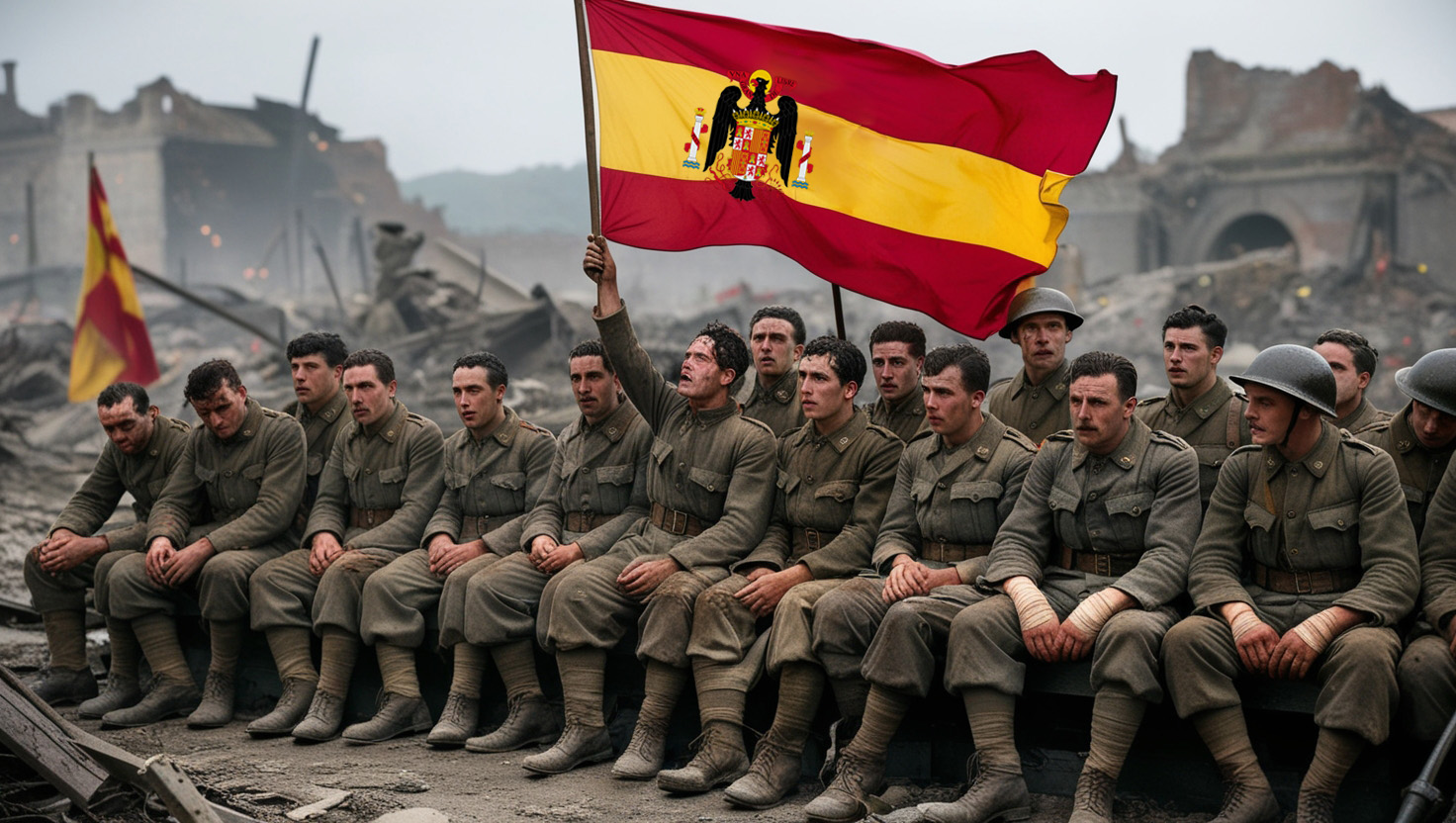Welcome to this exploration of an intriguing alternate history: What if Poland had won against both Nazi Germany and the Soviet Union? In this thought-provoking scenario, we will explore the possible outcomes of Poland’s victory and the profound implications for Europe. We’ll examine how such an outcome could have reshaped the balance of power, national identities, and the course of European integration. Join us on this journey into a world where history took a different turn, and let’s discover what might have been. Before we start, please support us by liking this video and subscribing to our channel!
Historical Context
Our story begins in the interwar period, a time of revival for Poland following the end of World War I. During these years, Poland engaged in numerous conflicts to establish its borders, including wars against neighboring nations. This period, known as the Interbellum, saw the emergence of a complex political landscape with movements advocating for democracy and national identity. The outbreak of World War II marked a turning point, with Poland facing a brutal invasion by Nazi Germany and the Soviet Union in 1939. The consequences were severe, as Poland’s sovereignty and national identity were profoundly impacted by the occupation and subsequent geopolitical changes. Stay tuned for our analysis and stay till the end. We have prepared a nice quiz at the end!
Military Dynamics
In this alternate history, Poland’s military strategies needed significant adaptation to counter the Blitzkrieg tactics used by Nazi Germany. Imagine a scenario where Polish forces, drawing inspiration from successful resistance movements, developed innovative defensive strategies. These might have included fortified positions and guerilla warfare tactics, similar to those used by the French Resistance and Eastern European partisans. By leveraging their knowledge of the local terrain and mobilizing support from neighboring countries, Poland could have mounted a more cohesive defense. Moreover, collaboration with Allied forces and the establishment of intelligence networks would have been crucial in undermining enemy supply lines. This would allow Poland to resist the German advance effectively.
Political Implications
The political ramifications of a Polish victory would have been far-reaching. Preserving its sovereignty would have altered the geopolitical landscape of Europe. It could potentially disrupt the post-war division that defined the continent during the Cold War. As a central player in Central European politics, Poland could have acted as a buffer between Germany and the Soviet Union. This might have diminished their influence over neighboring countries. Consequently, this shift might have encouraged the formation of regional alliances based on mutual interests and shared histories, promoting democratic governance and regional cooperation. A united Eastern bloc could have emerged, prioritizing sovereignty and collective security over Soviet influence.
Economic and Military Strength
Economically, a victorious Poland might have experienced significant growth and development. With its sovereignty intact and potentially enhanced through territorial acquisitions, Poland could have become a key player in post-war Europe. The resilience demonstrated by the Polish people during the war, coupled with strategic international cooperation, would have bolstered Poland’s military capabilities. Increased partnerships and collaborations could have fostered a sense of security and readiness against future threats. A different model of economic development, favoring liberal capitalism and integration with Western European markets, might have spurred earlier economic growth. This could reduce the disparities between Eastern and Western Europe.
Cultural and Social Impact
Culturally, a victorious Poland would have seen a resurgence of nationalism and pride. The narrative surrounding Poland’s role in World War II might have shifted from victimhood to heroism and resilience. This transformation could have influenced literature, film, and national memory, promoting a robust cultural renaissance. Imagine a Poland where urbanization accelerated, leading to a vibrant, culturally rich urban life. The integration of diverse ethnic communities could have contributed to a more cosmopolitan society, enhancing cultural exchanges and fostering social cohesion. The preservation of cultural heritage would have allowed for the uninterrupted evolution of Polish art, literature, and intellectual thought. This would solidify Poland’s influence in European affairs.
The Role of Intellectuals and Civil Society
In this scenario, the intellectual leaders allied with movements like Solidarity, who embraced an “anti-politics” approach, might have found further empowerment. A victorious Poland could have fostered a vibrant civil society where grassroots movements thrived. This would encourage civic engagement and activism. This environment would have allowed the Polish populace to take a more active role in shaping their governance and societal values. The push for social justice and workers’ rights could have led to a more equitable economic system. This would balance social welfare with growth. This approach might have prevented the stark class divides exacerbated by subsequent communist rule, fostering a more inclusive social fabric.
The Role of Landscape and Memory
Landscape plays a crucial role in shaping national history and memory. In this alternate history, Poland’s tumultuous events would have left indelible marks on its landscape. The preservation of Poland’s territorial integrity would have allowed for the maintenance of its cultural and ethnic diversity. This would avoid the mass deportations and resettlements that characterized the actual post-war period. The transition from a centralized communist state to a more fragmented and privatized landscape could have altered the public’s experience of space. This would foster new forms of civic engagement regarding ecology and environmental responsibility. This reflection of history in the landscape would have influenced civic engagement and environmental stewardship.
Long-Term Effects
The long-term effects of a Polish victory would be transformative for Europe. Politically, Poland could have served as a bulwark against totalitarian regimes, preventing or delaying the establishment of Soviet hegemony over Eastern Europe. This would promote democratic governance and regional cooperation. This would be similar to the integration efforts observed in Western Europe. Economically, Poland might have led a different model of development, favoring liberal capitalism and integration with Western markets. This would spur earlier economic growth in the region. Socially, a narrative of resilience against fascism could have strengthened national pride and unity. This would foster a sense of collective European identity.
Influence on European Integration
Poland’s victory could have significantly impacted European integration. The motivations behind the formation of the European Union, such as the desire to prevent war through unity, may have been echoed in a Polish-led initiative to foster collaboration among Eastern European nations. This alternate path might have paved the way for a more inclusive European integration process, accommodating the needs and aspirations of both Eastern and Western nations. A strong, independent Poland could have taken a leading role in advocating for collaborative efforts. This would contribute to a more unified approach to economic and political challenges much earlier than the historical trajectory led to the formation of the European Union.
Legacy and Global Impact
The legacy of a victorious Poland would extend beyond its borders, influencing broader European integration movements and collaborative efforts among nations. As a central player in Central European politics, Poland’s influence would have reshaped the balance of power and fostered stability in the region. The impact on the formation of the European Union would have been significant, with Poland advocating for a unified approach to economic and political challenges. This scenario serves as a reminder of history’s complexity and the myriad possibilities that could have shaped human events differently. It invites us to consider not just the military and political implications but also the profound cultural and social transformations that might have unfolded.
Conclusion
Exploring the hypothetical scenario of Poland winning against Nazi Germany and the Soviet Union reveals a complex alternate history with profound implications. This victory could have reshaped Europe’s political landscape, fostering democratic governance and regional cooperation. Economically, Poland might have led a different development model, promoting earlier growth and integration with Western markets. Culturally, a narrative of resilience and heroism could have strengthened national identity and influenced European integration. This exercise in alternate history reminds us of the countless possibilities that could have shaped our world differently. Thank you for watching!
You can watch the full video on YouTube:



